- Details
- Written by: Kamran Mofid
- Hits: 2014
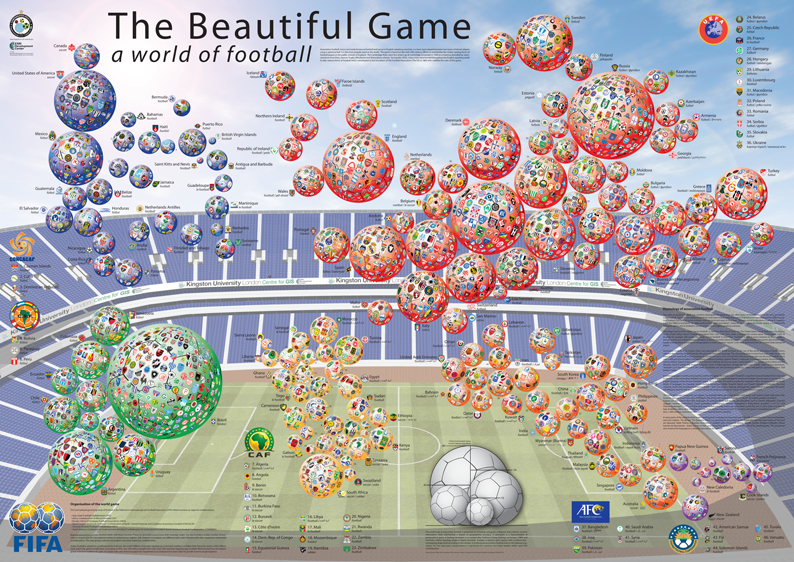
Photo: Ken Field- esri.com
Those familiar with My Blogs know well that, ‘Corruption’ has been a constant subject of discussion and reflection. Below I have noted a few recent postings, examples amongst many:
Corruption, Corruption,... Corruption, Everywhere
An Open Letter to Prof. Klaus Schwab, WEF, Davos
Open Letter to Mark Carney, Governor of the Bank of England
On the eve of London Anti- Corruption Summit- Values-led action to eradicate corruption
Today, the subject of my Blog concerns the so-called “The Beautiful Game”, a game that has sunk to its nadir of decadence; where everybody is up for sale: A game that has encouraged greed, lust, malicious envy, gluttony and more at the expense of honour, courage, loyalty, beauty, decency, true championship and achievement.
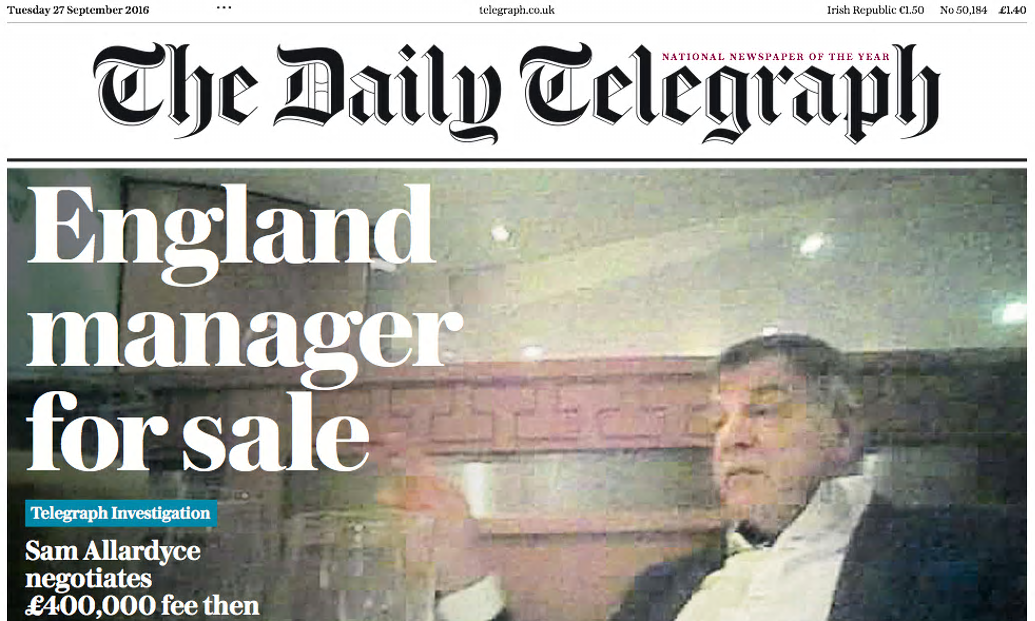
Let me explain these points a bit more by quoting a few passages from an excellent article by Simon Jenkins in today’s Guardian:
‘The truth of the matter is that these sports reek of money, and money unregulated or uncontrolled soon reeks of corruption. In the absence of self-discipline, and shielded by dubious members of the accountancy profession, these organisations have only one thing to fear – and that is embarrassment’
“I cannot take seriously sports I used to love when I cannot trust what I see before my eyes. I was baffled at the reason for last-minute player substitutions in football matches, until I was told these were fee-sharing deals. Cricket’s dropped catches and no-balls turned out to be paid for. British cyclists who suddenly won gold medals had superior equipment to other competitors. How did Qatar get to hold a summer World Cup, or Russia a winter Olympic games? You can guess. Are we soon to learn that referees are bribed for the inexplicable penalties that decide most rugby matches?
“George Orwell referred to sport as “bound up with hatred, jealousy, boastfulness, disregard of all rules and sadistic pleasure in witnessing violence” – and he was writing when it was amateur. Now there is money at stake, Cameron had to fawn at Sepp Blatter’s door, and confer on IOC bosses the extraordinary honour of Olympic traffic “Zil lanes” across London. Murky organisations may claim to be overseeing “ethics”. But why pay them any heed? When Russia is halfheartedly thrown out of the 2016 Olympics, it retaliates with that new weapon of international conflict, the hacked email and leaked health record. That should make the IOC quake.
“These bodies are run by self-perpetuating cliques sustained in various tax havens by other self-perpetuating cliques in member states. Fifa was rumbled last year only when the media gathered enough evidence for Swiss police, on behalf of the US authorities, to arrest its officials for “racketeering, wire fraud, money laundering and corruption” over many decades. The FA cannot have been unaware of the stink of corruption emanating from Fifa.
“As long as the financial and political rewards to international sport are so inflated, it is doubtful whether its rulers will ever truly come clean. The IOC has yet to purge doping in its sports and probably never will. The concept of what is a drug and what is performance enhancement is forever changing. The remedy for an honest sport, or an honest country, is to decline to collaborate with these international junkets. They should play “friendlies” and hope against hope that Fifa and the IOC will one day go the way of cock-fighting and all-in wrestling. The moral is never to trust a governor you cannot remove with a vote.
- Details
- Written by: Kamran Mofid
- Hits: 2575
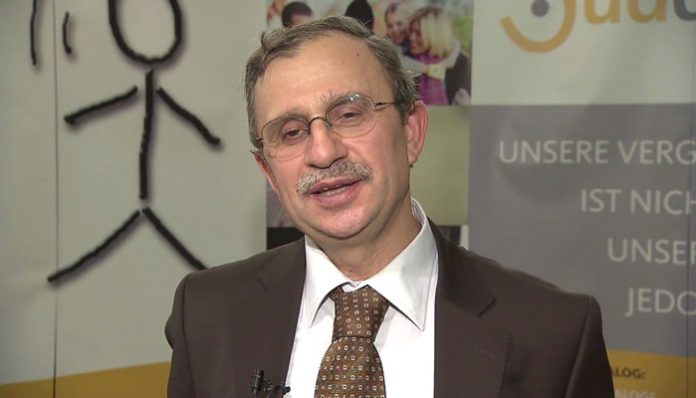
I was heartbroken to hear the sad news of the passing of my friend, Cemal Usak.
A renowned intellectual, journalist and president of the Journalists’ and Writers’ Foundation (GYV). Cemal, who was amongst the targets of the Turkish government’s ongoing crackdown on the Gulen movement, passed away at the age of 63 while in exile. Cemal had been receiving cancer treatment for the past several years.
I first met Cemal in the early 2000s in Rhodes, Greece. We both had been invited to participate at the The World Public Forum (WPF) "Dialogue of Civilizations"(WPFDC) Conference. I recall that we sat at a joint table having lunch together. We began to talk and converse: Who are you, What do you do, where have you come from? The usual first few questions at these sort of conferences.
It seems, we both enjoyed meeting each other. We kept contact and very soon Cemal invited me to give a series of lectures in Istanbul. Our friendship got stronger and deeper.
Cemal invited me to his house, to meet his dear wife and children. I reciprocated, and we became truly good family friends.
In 2005 I invited Cemal to our GCGI Conference in Kenya, where we enjoyed our dialogue and friendship as we travelled across Kenya, from Nairobi, to Kericho and then to Mombassa.

Group photo- Cemal 7th in from the left, 1st row standing
Photo: av.gnnsj
I always wanted to hold one of our GCGI Conferences in Turkey. Again Cemal was there to help me. With his brotherly assistance we had a magnificently successful and rewarding conference at Fatih University in Istanbul in 2007.
Cemal also had organised a few fantastic evenings of hospitality, dinners, cultural events for the conference, as well as post-conference tour and much more. All greatly appreciated by the conference participants.
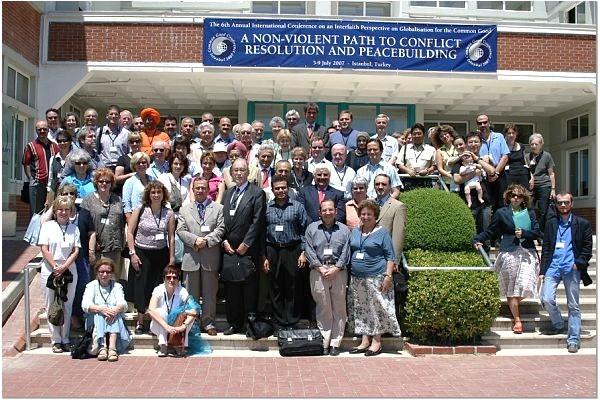
Group Photo- Cemal 5th in from the left, 1st row standing
Soon after our initial meeting in Rhodes, both Cemal and I were invited to join the International Coordinating committee (ICC) of the WPFDC, a task that we and other ICC members were delighted to perform, whilst encouraging and nurturing the development of the WPFDC, especially during those very early years. I have many fond memories of our ICC meetings in Moscow, Vienna and other parts of the world, including Rhodes itself.
There are many more stories that I have in my heart to tell about Cemal and our friendship. I give thanks for all the wonderful times we had together, too numerous to recall at this moment. This is a story for another day and another time.
I can only say I have lost a very good friend. I am praying in my own way for Cemal. God grant him eternal rest; he was a lovely man, who, if required, may still be a peacemaker in heaven.
- Details
- Written by: Kamran Mofid
- Hits: 2986
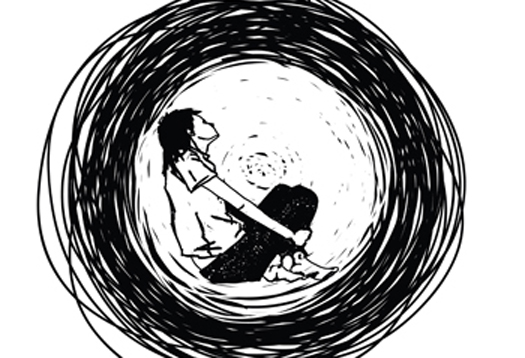
Photo: futurity.org
In the last few years I have done my utmost to highlight the tragic consequences of mental health crisis amongst our children, young adults, the youth and students.
Today I was reading a very important report which further highlights my concerns and anxiety about our collective failure to come together and to see how we may come to help our young people to cope better with the disaster that the so-called modern life has unleashed on them.
Young Britons living in 'suspended adulthood', research finds
Significant numbers of under 30s lack self-confidence and are at risk of mental health problems, with women worst affected, says report

Photo: youthnet.org
Anxious, worn down and fearing for the future: Major survey of 18-30 year olds reveals a generation in crisis, with young women worst affected
Millions of young people in Britain are being hit by serious financial and work problems and pessimism about the future with young women worst affected, according to a major new study of 18-30 year olds by the charity Young Women’s Trust.
Drawing on findings from a major poll of 4,000 18-30 year olds carried out by Populus Data Solutions, No Country for Young Women, reveals a despairing and worn down generation of 18-30 year olds, many of whose lives are on hold because of financial, work and housing problems.
Worries about work, finances and housing
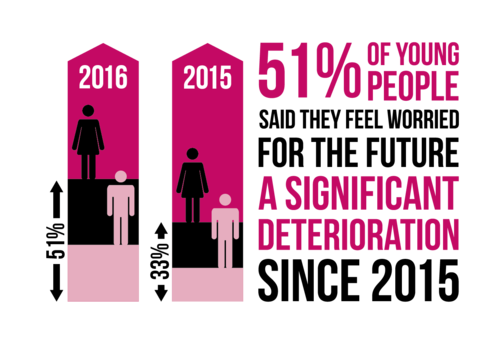
Photo: youngwomenstrust.org
As a result of financial pressures, young people aged 18-30 are having to put their lives on hold. Almost half (48%) said they may have to put off having children. 43% still live at home and a quarter (24%) had to move back in with their parents because they couldn’t afford to live independently. 56% of young people said they would consider moving abroad for work.
This is unsurprising given the difficulties in earning enough money reported by many young people. Three in ten young people had been offered a zero hours contract (30%). More than one in five reported having been paid less than the minimum wage (22%), and 28% of young people in work said they didn’t have enough paid hours. Almost half (48%) said they are worried about how much their job pays.
Financial pressures are particularly affecting young women, with 39% of young women saying it was a real struggle to make their cash last until the end of the month (compared with 27% of young men). 42% of young people said it would be a big financial problem if they had to replace a large item such as a fridge or washing machine this year (45% of young women, 39% of young men). Fewer than four in ten young people (36%) thought they would be debt-free by the time they are 40. One in 12 parents (8%) aged 18-30 reported having to use a foodbank to survive.
The survey also found that 30% of young women had experienced sex discrimination when working or looking for work. A majority of young people said women still face discrimination in the workplace, with young women (72%) more likely to recognise this than young men (54%).
The future’s not bright for young people
The psychological effect of these pressures facing millennials is taking its toll. The survey found that amongst 18-30 year olds:
- 47% lack self-confidence, with young women (54%) much more likely to say this than young men (39%)
- Over half of young people said they feel worried for the future (55% of young women, 47% of young men)
- Four in ten (42%) said they feel worn down (46% of young women, 38% of young men)
- One in three said they were worried about their mental health (38% of young women, 29% of young men).
In response to the survey findings, Young Women’s Trust is calling for addressing the challenges faced by young people to be at the heart of policymaking across government. Amongst the measures the charity wants to see are:
- A Minister established within central government with responsibility for overall youth policy, including youth employment
- A commitment from Government to moving towards extending the National Living Wage to under 25s
- A greater focus, including through JobCentre Plus, on supporting young adults – especially young women - with confidence, emotional wellbeing and employability.
Speaking today, Dr Carole Easton, Chief Executive of Young Women’s Trust said:
“At a time of life traditionally characterised by youthful confidence and optimism, it is distressing that so many young people, especially young women, are struggling to make ends meet, and are increasingly worn down and worried about the future.
Make no mistake about it, we’re talking about a generation of young people in crisis. And while life is hard for many young people, our survey shows it’s likely to be considerably tougher if you are a young woman.
It’s not in any of our interests to write off an entire generation. Much more needs to be done to improve young people’s prospects, including through creating a Minister for young people, extending the National Living Wage to under 25s, delivering on Government commitments to improve housing options for young people and tackling workplace discrimination. Our findings also show that there needs to be a particular focus on better understanding the needs of young women who are at real risk of being left behind.”
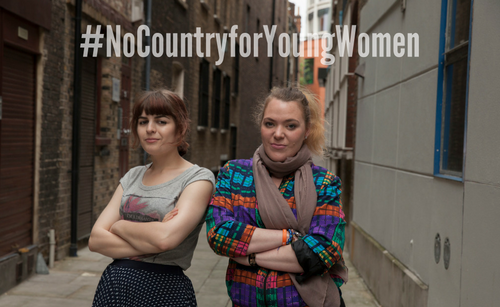
Photo: youngwomenstrust.org
Read the report: No Country for Young Women
Life's Big Questions:
What is this life all about?
Why am I here? What’s my Life’s purpose? How can I make the most of my Life?
The Wisdom Corner
The links noted below are amongst my Blog postings which are there to provide ideas for inspirational stories for everyone, encouraging contemplation, soul searching and spiritual enrichment.
Whenever you get a chance, please take a few minutes to watch, listen and read some of the amazing narratives below: They are some examples of the many gems I have discovered in my life journey from the wisdom of others. They have opened new horizons in my life. For that I cannot be grateful enough.
Here, by sharing their wisdom with you, I hope they will do the same for you: Life's Big Questions: My Wisdom Corner
